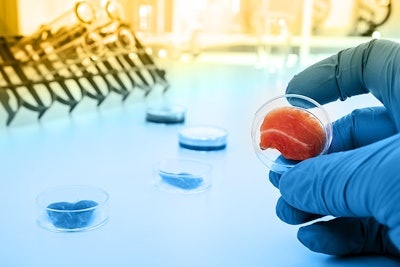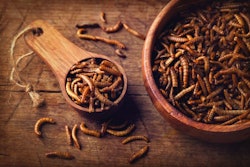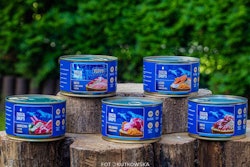
Cats’ carnivory may obligate pet owners to buy cat foods made with animal-based ingredients. A high-meat trend in pet food has increased the prevalence of muscle tissue, organs and other animal products in dog foods as well. Vegetarian, vegan and other pet owners who avoid meat in their own diets may have trouble meeting their own ethical goals while providing optimal nutrition to pets. Along with plant-based diets, cell-cultured meat as a pet food ingredient could help bridge this ethical gap, although economic, technological and social hurdles remain.
To examine the potential for cell-cultured meat in pet food, a team of UK-based researchers surveyed 729 pet owners with eating habits ranging from vegan to omnivore. Respondents answered questions about their willingness to try cell-cultured meat and serve it to their pets. Pet owners’ own diets correlated with their willingness to both try cell-cultured meat themselves or give it to their pets. People who ate meat reported the highest likelihood to try cell-cultured meat, and those who would eat it themselves were also likely to give it to their dogs or cats. The relationship was more complicated for vegetarians and vegans.
“Vegans and vegetarians were less likely to say they would eat cultivated meat (16%) than meat-eating respondents (40%),” the scientists wrote in PLOS ONE. “However, among vegans and vegetarians who would not consume cultivated meat, the majority (56%) indicated that they would still feed it to their pets.”
Cell-cultured pet food ingredient options
Cell-culture supporters believe the technology will fulfill demand for animal muscle tissue without the need for farms. Growing meat in vitro hypothetically could reduce pollution and habitat loss associated with rearing, slaughtering and transporting livestock. Along with sustainability aspects, animal rights advocates hope cell-cultured meat will decrease demand for cattle, chicken and other livestock kept in captivity. Cell-cultured meats also reduce the chance of zoonotic disease spreading from livestock and wild game to people. Nevertheless, production of cell-cultured tissues requires specialized infrastructure, and the lifetime sustainability assessments of the products need to incorporate construction and other start-up costs. Producing meat the old-fashioned way remains much less expensive than cell-cultured steak.
Pros and cons aside, pet foods made using animal tissues grown without animals remain rare on the global dog and cat food market. As innovative products made from cell-cultured meat appear on the market, certain factors may forecast which people may be more inclined than others to try feeding those products to their pets.
In the survey, 90% of respondents fed at least one of their pets meals consisting of animal protein. Most pet owners (77.9%) reported feeding their pets terrestrial vertebrate animals, such as chicken, beef, pork or game.
“Only 9.9% of respondents fed a mostly vegan or vegetarian diet, even though 32.6% of respondents identified as vegan or vegetarian,” the researchers wrote.
Dietary concerns aside, the species of pet influenced owner’s reasons for keeping meat in the diet. Considering main concerns related to eliminating meat from pets’ menus, cat owners in the survey were more likely to be concerned about meat’s naturalness and necessity for their pets than dog owners.
Cats need taurine in their diets for healthy functioning of various organs, including the heart. To prevent dilated cardiomyopathy (DCM), conventional cats foods include synthetic taurine added in to supplement the amount lost during extrusion and other processes. Although organic chemistry supplies much of the taurine in pet foods, cell-cultured meat could provide taurine from biological sources for those who demand pet food that contains no artificial ingredients, nor animal products.



















